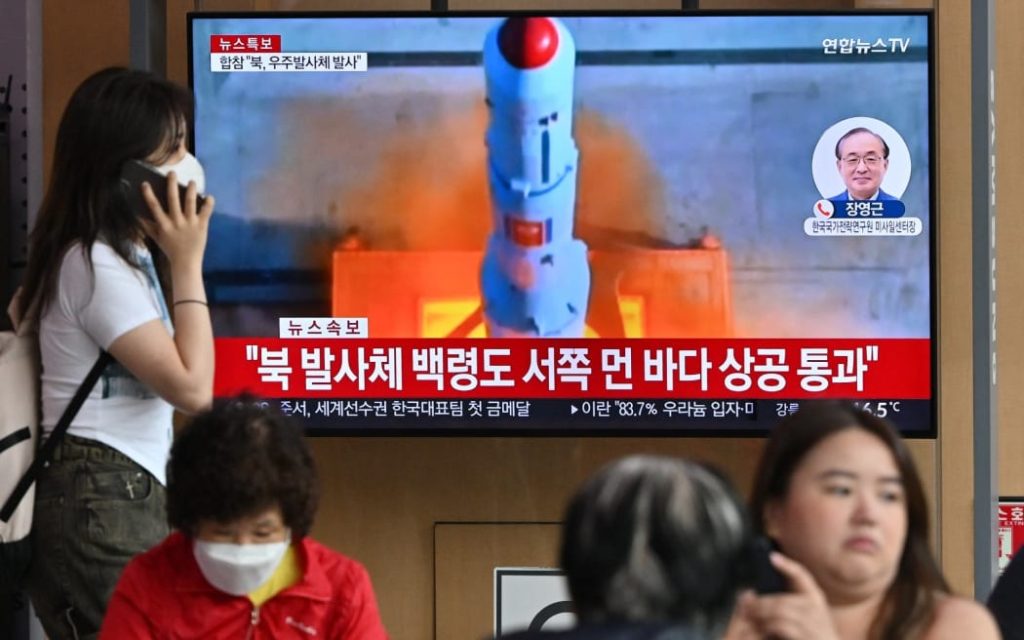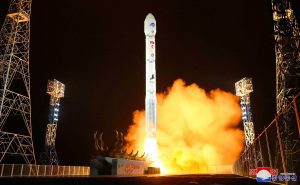North Korea spy satellite launch fails

Seoul, The Gulf Observer: North Korea’s attempt to put the country’s first spy satellite into space failed Wednesday in a setback to leader Kim Jong Un’s push to boost his military capabilities as tensions with the United States and South Korea rise.
After an unusually quick admission of failure, North Korea vowed to conduct a second launch after learning what went wrong with its rocket liftoff. It suggests Kim remains determined to expand his weapons arsenal and apply more pressure on Washington and Seoul while diplomacy is stalled.
South Korea and Japan briefly urged residents to take shelter during the launch.
The South Korean military said it was salvaging an object presumed to be part of the crashed North Korean rocket in waters 200 kilometers (124 miles) west of the southwestern island of Eocheongdo. Later, the Defense Ministry released photos of a white, metal cylinder it described as a suspected rocket part.
A satellite launch by North Korea is a violation of U.N. Security Council resolutions that ban the country from conducting any launch based on ballistic technology. Observers say North Korea’s previous satellite launches helped improve its long-range missile technology. North Korean long-range missile tests in recent years demonstrated a potential range that could reach all of the continental U.S., but outside experts say the North Korea still has some work to do to obtain functioning nuclear missiles.
The newly developed Chollima-1 rocket was launched at 6:37 a.m. at the North’s Sohae Satellite Launching Ground in the northwest, carrying the Malligyong-1 satellite. The rocket crashed off the Korean Peninsula’s western coast after it lost thrust following the separation of its first and second stages, the North’s official Korean Central News Agency said.
South Korea’s military said the North Korean rocket had “an abnormal flight” before it fell in the water. Japan’s Chief Cabinet Secretary Hirokazu Matsuno told reporters that no object was believed to have reached space.
South Korea is expected to launch its first spy satellite later this year, and analysts say Kim likely wants his country to launch its spy satellite before the South to reinforce his military credentials at home.
After repeated failures, North Korea successfully put its first satellite into orbit in 2012, and the second one in 2016. The government said both are Earth-observation satellites launched under its peaceful space development program, but many foreign experts believed both were developed to spy on rivals.
Observers say there has been no evidence that the satellites have ever transmitted imagery back to North Korea.


